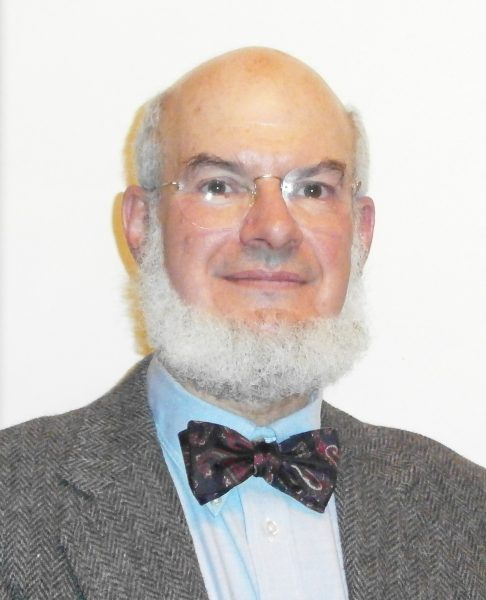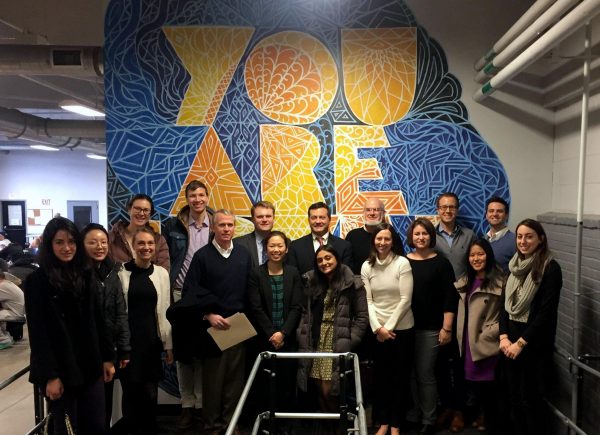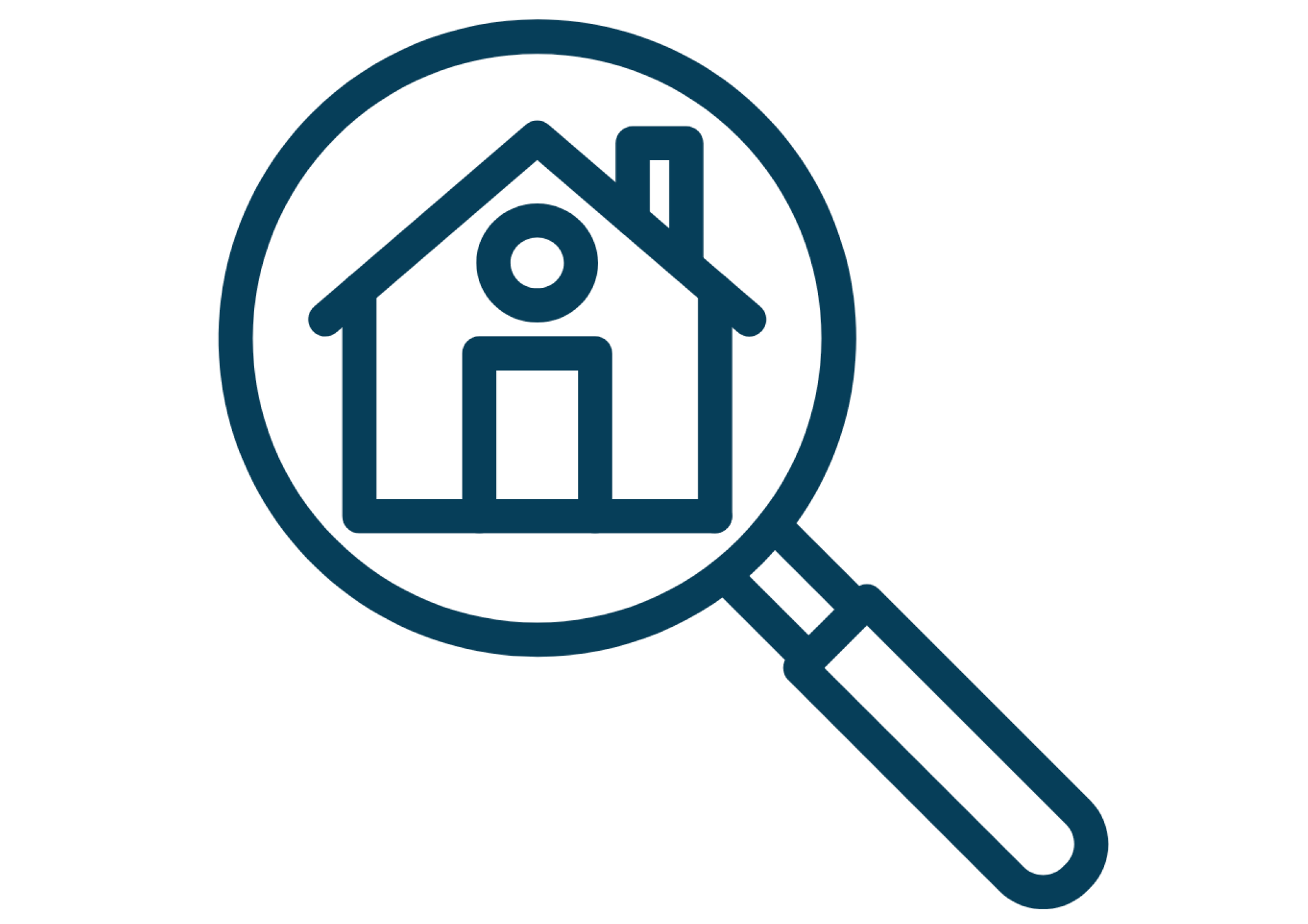 Once or twice a month, attorney Dick Bauer joins Legal Clinic Director Mia Friedman and a rotating team of volunteer lawyers at one of eight Boston-area homeless shelters for the Clearinghouse’s Legal Clinic for the Homeless program.
Once or twice a month, attorney Dick Bauer joins Legal Clinic Director Mia Friedman and a rotating team of volunteer lawyers at one of eight Boston-area homeless shelters for the Clearinghouse’s Legal Clinic for the Homeless program.
Now in his second year as a consultant with the Legal Clinic, Dick draws on the three decades he spent as a housing attorney at Greater Boston Legal Services (GBLS) to help screen potential clients, assist with intake interviews, discuss case strategies, and provide additional guidance to volunteers when necessary.
“Dick really goes above and beyond in terms of time commitment, and he’s a very zealous advocate for tenants,” Mia says. “He’s a great role model for our volunteers and for me, and we’re so fortunate to have him working with us.”
The Clearinghouse has been expanding the Legal Clinic since 2016, following a $100,000 grant from the Cummings Foundation. After adding new clinic locations and expanding staff capacity, Mia wanted to ensure the growing pool of volunteer attorneys had access to more case support and mentorship for housing cases, which make up the largest share of clinic cases. Dick—who was already an Access to Justice Fellow at both GBLS and the National Consumer Law Center (NCLC)—was the perfect match, and having him on board has been extremely beneficial for both clients and volunteer attorneys.
“Some of the volunteers that come to the Legal Clinic are new associates or experienced attorneys who have never done a housing case or any type of poverty law case,” Mia says. “Dick is very good at guiding them through the process if needed. I’ve found that the people he works with are more excited and willing to take on housing cases the next time.”

In one recent case, a family lived in a two-bedroom subsidized apartment with their two young children, but after they had two more children the landlord attempted to evict them, saying that the apartment was now overcrowded. When a volunteer from WilmerHale, Senior Associate Chaloea Williams, agreed to represent the family, Dick recruited an expert to write a report showing that the overcrowding was not enough to create a health or safety problem, and helped Chaloea write a brief and prepare her for the argument. A Housing Court judge ruled that the landlord could not evict the family for overcrowding unless it showed that the overcrowding was significant and created serious safety or sanitary problems at the premises. As a result, the family was able to remain in the apartment.
In another case, a tenant was being evicted from subsidized housing for having unauthorized guests, and for allowing them to come into the building without her supervision. The tenant has serious mobility impairments that prevented her from going down the stairs to let them in and supervise them. Dick and a volunteer from Brown Rudnick, Associate Tristan Axelrod, met the tenant at a clinic, and Tristan agreed to represent her in the eviction case. Dick and Tristan represented the tenant in extensive negotiations with the landlord. Ultimately, the landlord agreed not only to let the tenant remain, but to move her to an accessible unit as an accommodation to her disabilities.
Despite an interest in social justice and public service, Dick had no plans to become a lawyer when he graduated from MIT in the 1970s. Instead he worked as a car mechanic and then took a job as a claims representative with the Social Security Administration (SSA) before getting involved in community organizing.
At the SSA, Dick often found himself sitting across the desk from legal services attorneys who were advocating for their clients. He was also frequently working with these same attorneys in his capacity as a community organizer.
“In both of those instances, I thought, ‘I want to be doing that,’” he says. “So I went to law school intending to be in legal services and held on pretty tenaciously, even though it was the early days of the Reagan Administration and there was no money for anyone to be hiring legal services lawyers.”
Dick graduated from Northeastern University School of Law, and in 1985 he was able to secure a position as a staff attorney at GBLS.
Over the next three decades, Dick represented low-income homeowners, tenants, and homeless families in cases related to housing, utilities, sanitary code enforcement, bankruptcy, public benefits, and emergency shelter issues. He also worked on the Boston Bar Association’s Civil Right to Counsel pilot project, did additional legal work with the Massachusetts Law Reform Institute, and spent a year as a Senior Training Fellow at the Center for Legal Aid Education.
In 2014, during a period of downsizing, Dick left GBLS and embarked on the next stage of his legal career. He became a contractor with NCLC, where he supervised the HomeCorps Program and represented clients facing foreclosure and foreclosure-related eviction.
Throughout his career, Dick has had an almost singular focus on helping others. And there is no sign that he’s ready to stop. These days, in addition to his work with the Clearinghouse, he also consults with Volunteer Lawyers Project and Medical Legal Partnership | Boston, and will be a trainer for the Sargent Shriver National Center on Poverty Law’s Affirmative Litigation training in Chicago this June.
On April 24, Dick will attend the Massachusetts Bar Associations Annual Dinner, where he will accept the Lifetime Achievement Award in recognition of his career and his many accomplishments. It’s a well-deserved honor for an attorney who found his calling nearly forty years ago and never looked back.


